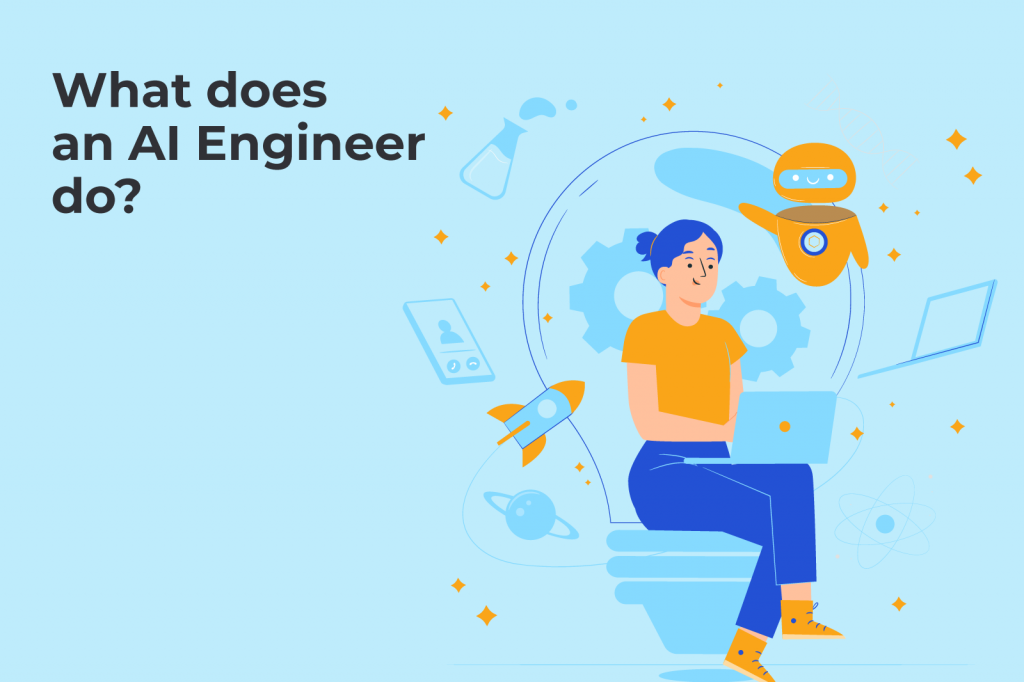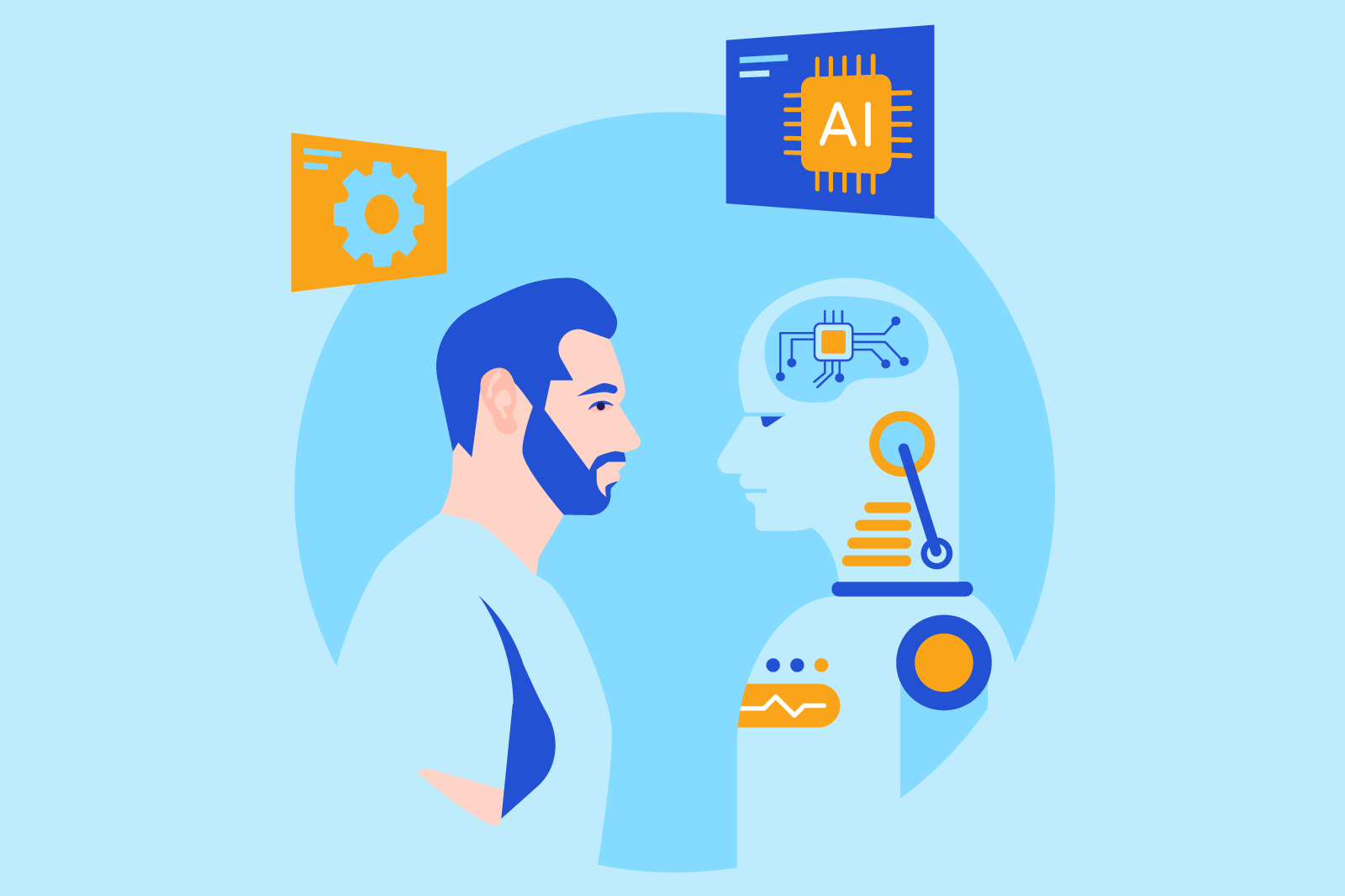
What Does an AI Engineer Do?
With all this talk about AI, it was time to take a deep breath and demystify what an AI engineer is and what he actually does. The AI Engineer has an almost fictional aura surrounding it, so our declared mission with this article is to bring a fresh coat of pain into the subject and clarify what it is and what it really does. With that out of the way, let’s start with the beginning - what’s an AI Engineer?
What is AI Engineering, and what is an AI Engineer?
AI, or artificial intelligence, is almost seen as a true rock star by businesses, given its potential to skyrocket their efficiency and productivity in an almost unlimited number of industries. It’s estimated that by 2023, AI could contribute up to $15.7 trillion to the global economy. To put that in perspective, those are numbers higher than the combined GDP of China and India - that obviously will turn the AI engineer role into a most-wanted one due to the immense growth opportunities.
AI Engineering is the field that focuses on creating systems, tools, and applications that empower artificial intelligence to be applied in the real world. Consequently, it’s essential to see how we determine if a system is powered by artificial intelligence. It’s accepted that any system or application miming human behaviors and/or functions can be considered AI, which involves learning and solving problems.
To define what an AI engineer is, we first need to turn our eye to the concept of algorithms. Algorithms are trained with data, usually vast amounts; these are the ones that enable AI to learn and solve problems based on the data that has been inserted. AI Developers are tasked with developing, testing, and improving the algorithms to work similarly to a human brain.
What Does an AI Engineer do?
In real life, an AI Engineer is tasked with creating systems and applications that enable businesses to increase their performance and efficiency, lower costs, improve customer satisfaction, and streamline decision-making with accurate data.
An AI engineer adds automation to organizations, products, and services using software engineering and data science.
Diving into more detail, what are the actual responsibilities and tasks of an artificial intelligence engineer?
- Firstly, he needs to communicate and coordinate with other departments and company members to identify and decide on the processes that could be improved by AI and by what margins.
- Develop AI model algorithms from scratch that could bring valuable outcomes to the company processes, products, or services. He also needs to be able to explain the outcome of those AI models in a simple and intuitive manner - so that everyone can understand.
- Create and manage the AI infrastructure that is required and vital for the excellent functioning of any AI model.
- Develop AI solutions that can mimic human behavior and tasks to handle repetitive tasks that employees would otherwise do.
- Analyze and interpret statistical data to improve AI models, business decision-making, and product development.
- Create, train, and improve AI models.
- Turn AI models into APIs (application programming interfaces) so that other systems/applications can interact with them.
- Create data pipelines that help transform raw data into structured data vital for AI processes.

What are some real-life examples of AI Engineer's work?
Believe it or not, chances are incredibly high that you’re using AI in your everyday life, even when it’s not as obvious. When you get comfy on your couch and open Netflix, if you choose to watch one of their recommendations, that’s AI and machine learning that learns based on your preferences. That’s also valid for Spotify with music or podcast recommendations or YouTube with video recommendations. In the business world, there are also multiple examples ranging from intelligent document analysis systems that can pull data from any document or other communication channel; chatbots used for customer service, or advanced medical image analysis used in the pharma industry.
As you can tell, AI is truly taking over the world, lucky for us, not in a “Terminator” themed way.
What are the required skills of an AI Engineer?
AI Engineers are somewhat a “jack-of-all-trades” in the software development world because they need to master statistics and mathematics, multiple programming languages, preferably master SQL for language databases, and if that isn’t enough, have excellent communication skills to collaborate with multiple departments and a critical and detail-oriented personality.
What are the technical skills required for an artificial intelligence engineer?
- A good understanding of statistics and mathematics for working with algorithms and extensive knowledge of probabilities.
- Fluent in multiple programming languages such as Python, C++, Java, and R; these help them develop AI models.
- Knowledge of several frameworks, such as TensorFlow or PyTorch.
- Solid knowledge and understanding of different types of architectures in the AI models ecosystem.
- SQL and NoSQL skills are essential for querying and managing large datasets.
- Knowledge of tools such as Docker and Kubernetes for containerization, configuration management, and orchestrating deployments. AI engineers are also responsible for monitoring and maintaining the performance of AI systems post-deployment.
What are the soft skills required for an artificial intelligence engineer?
- Being detail-oriented and being able to discover minor discrepancies in the context of working with vast amounts of data can have a major impact.
- Critical thinking enables them to solve problems, identify, test, and constantly improve on previous models and work.
- Excellent communication skills as they will most likely work with multiple departments and also with people who don’t have a technical background.
- Besides having a good eye for details, they must see the big picture, understand where AI applications could be implemented, and what outcome they could have globally.
In a nutshell - What does an AI Engineer do?
Hopefully, we managed to answer your question; in a nutshell, AI Engineers pull data from various sources and structure it into usable forms for the algorithms. Then, they create, test, and improve AI models that are implemented into usable AI applications via code embedding or API calls.
If you’re looking for a highly skilled team of AI Engineers who are also complemented by an experienced team of UI/UX designers, testers, and quality assurance engineers with decades of experience in multiple industries, let’s have a chat.
Article written by Iulia Filimon, NLP Engineer
Iulia designs and develops algorithms and models that enable computers to understand, interpret, and generate human language. She participates in building the first innovative AI company's solutions and exposing them to clients.